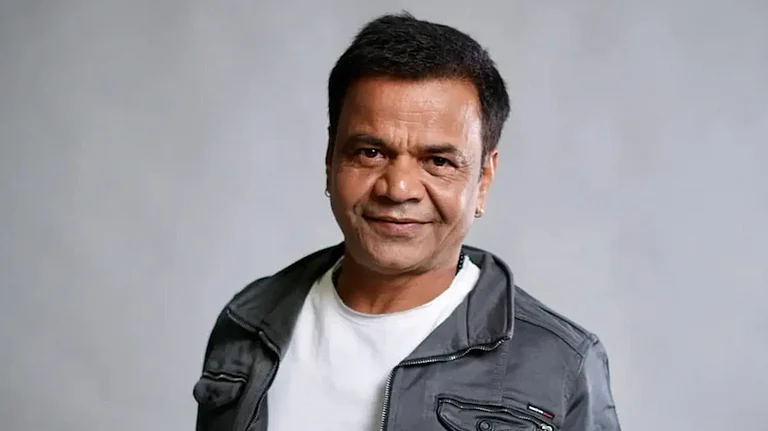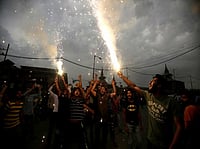For Asmat Ashai, Coke Studio’s recent release of Ha gulo has finally gifted her US-based organisation fame beyond the cultural circles in her native Kashmir, but what makes the sexagenarian scholar happier is the big picture: the Valley’s music has won a global audience.
It took five years for Maryland-based Asmat to convince the Karachi-headquartered international franchise to take up Kashmiri music album so as to spread its beauty to people beyond the region and even the Asian continent, she tells Outlook. Today, it excites her Funkar International that Coke Studio Explorer’s twist to a cult Kashmiri folk song has become massive hit a week after its release. YouTube alone has clocked close to 3.2 lakh views of the three-minute video that has the seven-decade-old lyrics rendered by a middle-aged vocalist from Muzaffarabad of Pakistan-Occupied Kashmir.
“It was my dream that Kashmiri music should have an international audience,” says Asmat, 66, who lives in Ellicott City with her PoK-born husband Showkat Ashai after their marriage in 1974. “In Pakistan, I noticed they had no idea of Kashmiri music.”
So, in 2013, Asmat met producers of Pakistani a music band called Strings with the primary aim of bringing together people on both sides of the Kashmir border. “For that, we have to have Kashmiri music. But they didn’t want to be involved with anything Kashmiri—because of the region (which is a disputed territory between India and Pakistan),” she recalls.
All the same, Asmat, who teaches the Kashmiri language in the US Universities, began auditioning people. And, at one stage, everything seemed to have got ready: two artistes—“though not well known”—were selected. “But then there happened a slump in the India-Pakistan relations. We had to shelve the programme.”
Later, Asmat began trying to search someone in PoK capital Muzaffarabad who could sing in Kashmiri. “At that, one of my contacts there told me that there is one who sings at marriages,” she says, revealing how he got in touch with Altaf Ahmad Mir, who ended up singing in the Coke video that has gone viral after its release last Wednesday. “I stumbled upon him through some of my connections there (in PoK). We heard his voice, were impressed and informed the Coke Studio people.”
Altaf’s rendition of the classic by famous Kashmiri poet Ghulam Ahmad Mahjoor is now a rage across the whole of Kashmir—and several other parts of the world. “Ha gulo tuhi ma sa vuchwun yaar muen (O Flowers, have you seen my love?)” form the opening lines of the song by Mahjoor (1887-1952), who was born in a Pulwama village, 40 km away from Srinagar.
Altaf, 50, has been living in Muzaffarabad for the past 23 years, but the singer originally belongs to Anantnag on the Indian side of Kashmir. According to his family, Altaf had, at the age of 22, left his Janglat Mandi home in 1990 for arms training like hundreds of fellow Kashmiri youngsters. Four years later, he returned to Kashmir, but found the place had changed: a counter-insurgent force had gained control in south Kashmir. Fearing the pro-government Ikhwan comprising surrendered Kashmiri militants, Altaf crossed over to the LoC again—in 1995, this time choosing to settle in Muzaffarabad permanently.
Now, almost a quarter-century later, Altaf and his band have made it to the Coke Studio to the delight of everyone in the Valley. Along with sarangi player Ghulam Mohammad Dar, Saif-ud-din Shah (tumbakhnaer) and Manzoor Ahmad Khan who plays the pitcher-like nout, this Ha gula version is an “effortless mix of traditional and electronic”, according to Coke. The franchise has been featuring live studio-recorded music by both known and budding artistes experimenting in a range of genres that includes traditional, classical and folk from the subcontinent alongside contemporary hip, hop, rock and pop known for their Western moorings.
For Asmat, the Coke Studio song is important for Kashmir and its heritage. “Its impact will be huge. There will be a burst in the appreciation of the music,” she says. Already her Funkar is facilitating singers, including Kashmir’s leading female voice Mehmeet Sayeed, to perform Kashmiri ghazals and folk in America and other parts of the world.
Abid Ahmad of Jammu and Kashmir Academy of Art, Culture and Languages, says the Coke version of the song deserves the rage it has been winning. “Kashmir's musical legacy is very rich and vibrant. Its soothing lines and tunes set to pulsating beats have lately started to attract even the young,” notes Ahmad, who is editor of Sheeraza English, a quarterly journal brought out by the Srinagar-headquartered academy. “However, as we see the world over, classical and the folk traditions need to be revisited and redone without de-shaping their original colour. That is something the Coke Studio rendition of this popular song has done.”






















.png?w=200&auto=format%2Ccompress&fit=max)



